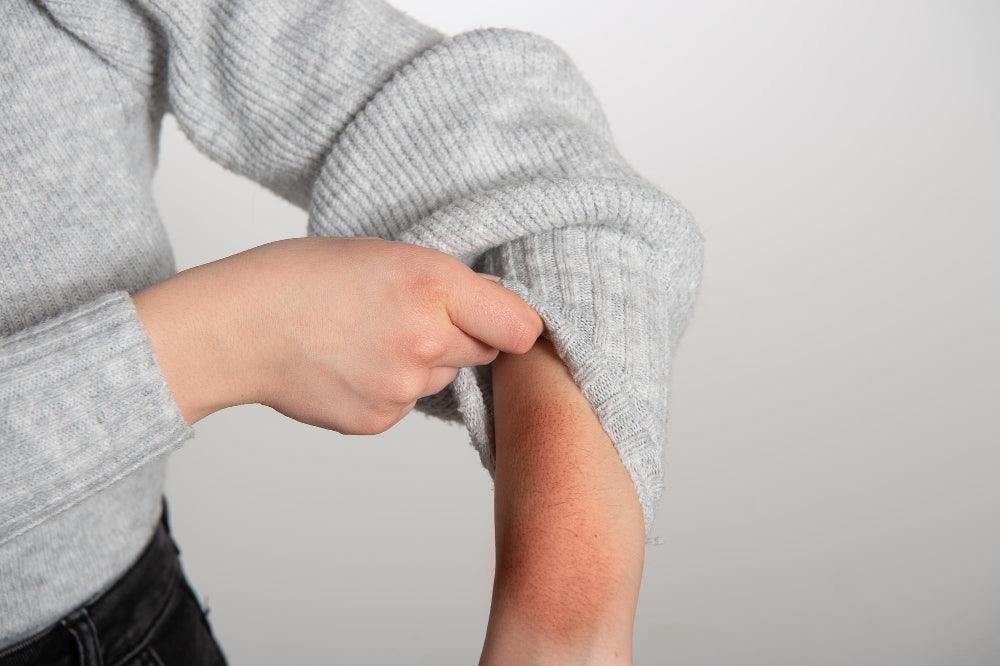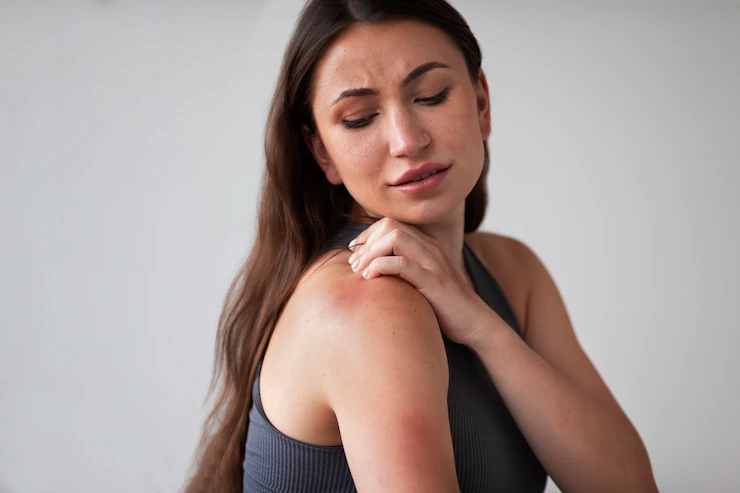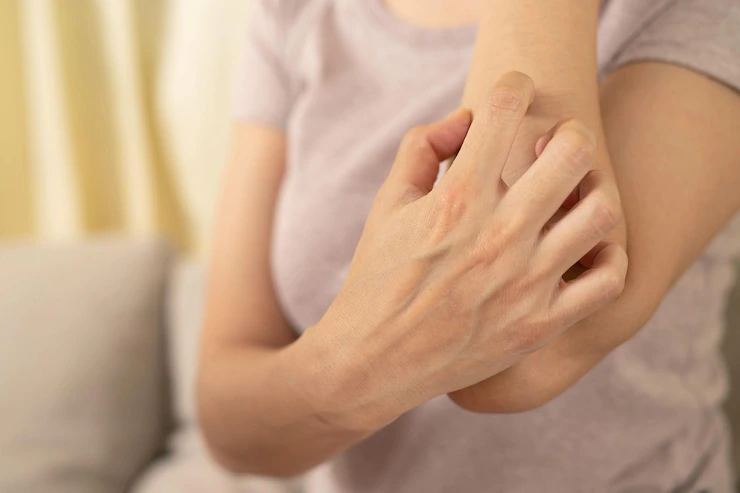Itchy skin and menopause



Marking the end of reproductive life, menopause is a huge transitional phase in a woman’s life. Menopause may occur around the age of 45 to 55 years for most women, with 51 years being the average age for menopause to occur among women in the UK. Unfortunately, it is also the age wherein most women go through emotionally and mentally difficult situations wherein their children are leaving home or they are caring for their aged and ill parent. The physical and hormonal changes associated with menopause tend to make dealing with such situations much worse.
Menopause is essentially twelve consecutive months during which a woman does not have her menstrual period. She no longer has functionally active ovarian follicles and her ovaries have permanently stopped to ovulate.
The years leading to menopause are characterized by a wide range of symptoms caused by declining functional follicles and fluctuating hormonal levels. This period is called perimenopause and usually begins a decade before menopause occurs. Women may experience perimenopause symptoms for eight to fourteen years until they finally attain menopause.
Post-menopause is the period after menopause, during which a woman’s estrogen levels are at an all-time low.
Common symptoms of menopause include:
Irregular Menstrual periods
Headache
Breast tenderness
Hot flushes
Unusual weight gain
Joint and muscle pain
Itchy Skin
Urinary incontinence
UTI and vaginal infections
Bloating

Many women complain of a wide range of problems with their skin during menopause. Hot flushes, night sweats, and vaginal dryness are some of the more common skin-related symptoms associated with menopause. Medically termed 'pruritus', itching of the skin has also been observed frequently among menopausal women. The T zone of your face, i.e. the forehead, nose, and chin, is usually affected by pruritus during menopause. Other affected areas include the skin of the neck, chest, arms, elbows, legs, and genital area.
Skin irritation
Dryness of the skin
Redness
Flaky skin
Itching of the vaginal area is termed vulvar pruritus and is often accompanied by dryness and yeast infection. Thinning and dryness of the vaginal tissues may also cause vaginal atrophy.
Apart from normal age-related changes in the skin, fluctuating hormones during menopause are responsible for skin problems during this transitional period. The oestrogen hormone plays a significant role in maintaining healthy skin. It is responsible for adequate collagen in the skin. Collagen helps maintain skin hydration and thickness. Optimum levels of collagen help to prevent ageing and wrinkling of the skin.
Declining oestrogen levels during menopause results in a decrease in the collagen present in the skin, resulting in thinning, dryness, and flakiness of the skin. This ultimately manifests in itchy and irritated skin.
Wearing loose, comfortable cotton clothes, maintaining hygiene, and adequately moisturizing your skin will help to reduce the discomfort caused by itchy skin.
Avoid exposure to perfume sprays and strong detergents; try to use products suitable for sensitive skin, and bathing soap is recommended.
Avoid scratching the area of itchy skin
A cold compress may be used to help alleviate itchy skin.
Avoid hot showers since hot showers tend to dehydrate your skin by affecting negatively affecting the natural oils in your skin. Bathing in lukewarm water can be soothing to your itchy skin.
Eating food rich in drinking plenty of water and a healthy balanced diet is essential to skin health. Food rich in vitamin C can help revive damaged skin by keeping skin hydrated.
Supplements like vitamin C and primrose oil can help relieve the itchiness and soothe your skin.
It is best to consult your doctor for persisting symptoms of itchy skin. Depending on your specific clinical symptoms, your primary care physician may prescribe you mild steroid creams like hydrocortisone creams or anti-histaminic medications. In some cases, hormone replacement therapy may be recommended to treat the menopausal symptoms caused by declining oestrogen levels in the body.
To learn more about menopause, view our information page here.
To view our range of skin care lotions and moisturisers, find our products here.










Plus get the inside scoop on our latest content and updates in our monthly newsletter.